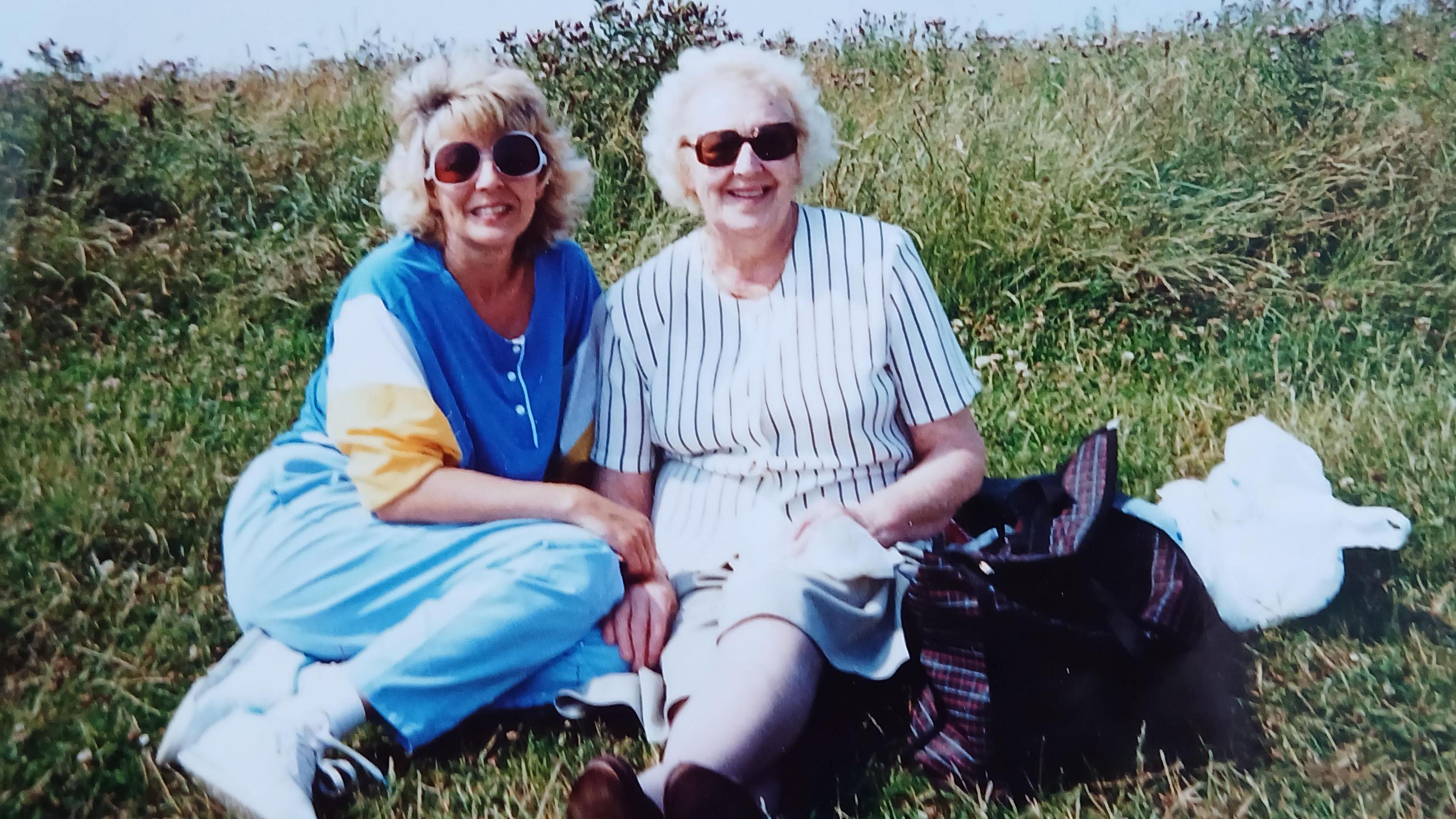Family's fight for headstone for common grave baby
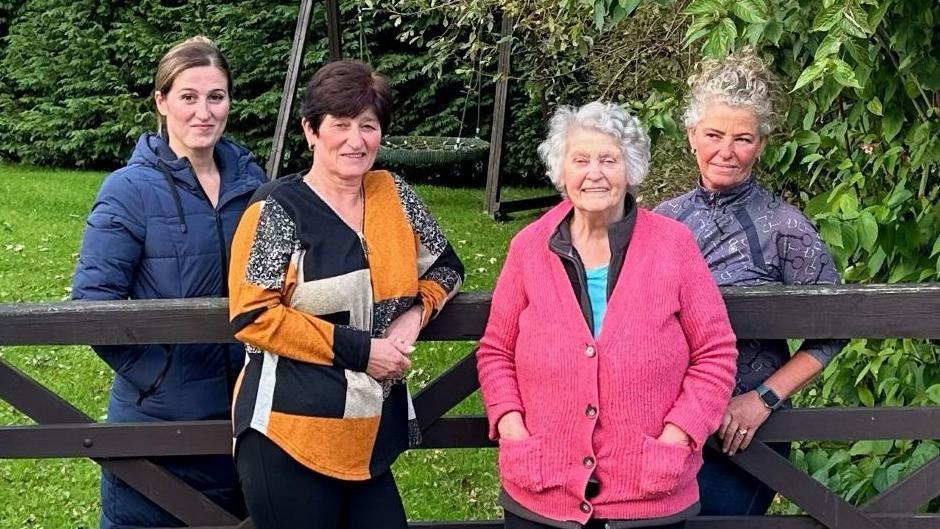
Carol Tyrie, (right), standing next to her mother Angela Wiggans, with her sister and niece
- Published
A family's struggle to erect a headstone for a one-day-old baby who was buried in an unmarked plot has revealed there are hundreds of such "common graves" in a Lancashire town's cemeteries.
Carol Tyrie, 51, from Brocklehead Farm in Eccleshill started a quest for the final home of Aileen Wiggans on behalf of her mother Angela in November.
She located the burial in an unmarked grave in Darwen Western Cemetery.
But then faced a six-month battle with Blackburn with Darwen Council to be allowed to put up a headstone marking the final resting place of her sister, who died in 1967.
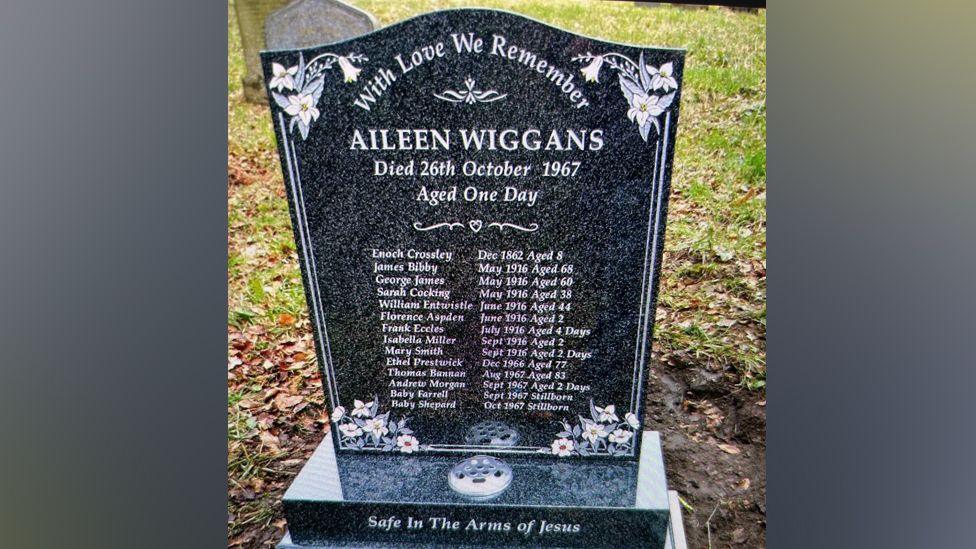
The grave includes an eight-year-old boy who died in 1862, two stillbirths, four other infants and four adults
Ms Tyrie said: “She was taken away and buried and that was that. It was what they did in those days. We have always known about her in the family."
She said her mother had "said she wanted to find Aileen’s grave before her 80th birthday and put up a headstone".
“We got help from the Friends of Darwen Cemetery and we found her in an old part of Darwen’s Western Cemetery which is now full and closed," she said.
She said the council's bereavement services told her the family could not put up a headstone as it was a common grave.
“I asked if we could move Aileen and they said no again and then asked if we could buy the plot with the others in it and they said no yet again," Ms Tyrie said.
“We felt like we’d hit a brick wall."
The council said it was a "sensitive case" and it had a duty of care to all the people buried in the grave.
'They are remembered'
Ms Tyrie contacted her ward councillor Julie Slater who advised her to go to the coroner’s office.
“The coroner said we could put up a headstone and leave her there or move her and the council’s bereavement services caved in," she said.
“We felt the best thing was to leave her there where she had been at rest since 1967.
“We felt the others in the grave should be remembered as well so with the help of the Friends of Darwen Cemetery we found their names."
They included eight-year-old Enoch Crossley, who died in December 1862, two babies who were stillborn, four other infants, and four adults who were buried between 1916 and 1967.
“Aileen and their resting place is now properly marked and they are remembered," Ms Tyrie said.
John East from the Friends of Darwen Cemetery group said common graves "include infants, stillbirths and many victims of the epidemics – including cholera, typhoid and flu – which swept the town in the 1800s and early 1900s".
He said the group would be happy to help any other families who want to find relatives.
Borough strategic environment director at Blackburn with Darwen Council Martin Eden said: “The case of the late Aileen Wiggans is a very sensitive one and although we did try our upmost to help the family, we also have a duty of care for the others buried in the grave along with their families."
Listen to the best of BBC Radio Lancashire on Sounds and follow BBC Lancashire on Facebook, external, X, external and Instagram, external. You can also send story ideas to northwest.newsonline@bbc.co.uk, external and via Whatsapp to 0808 100 2230.
Related topics
- Published5 September 2024
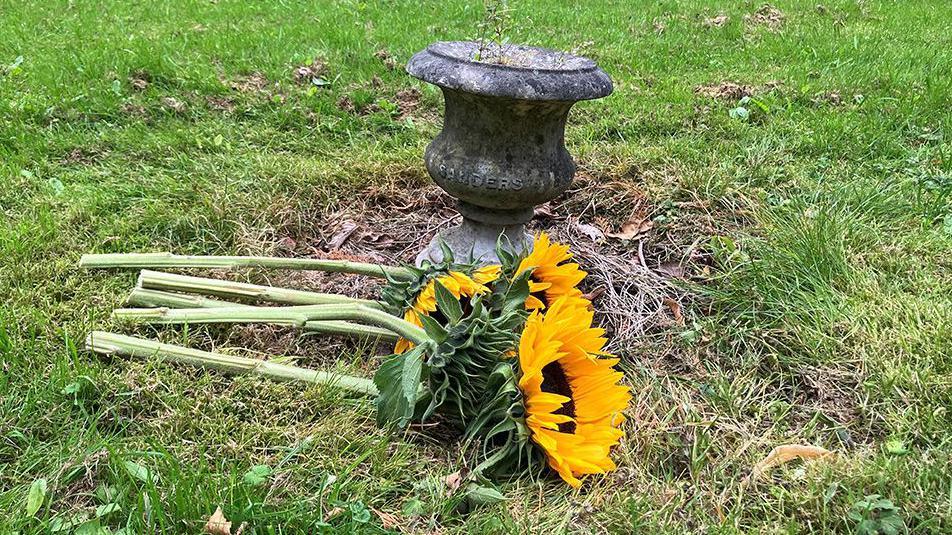
- Published6 September 2024
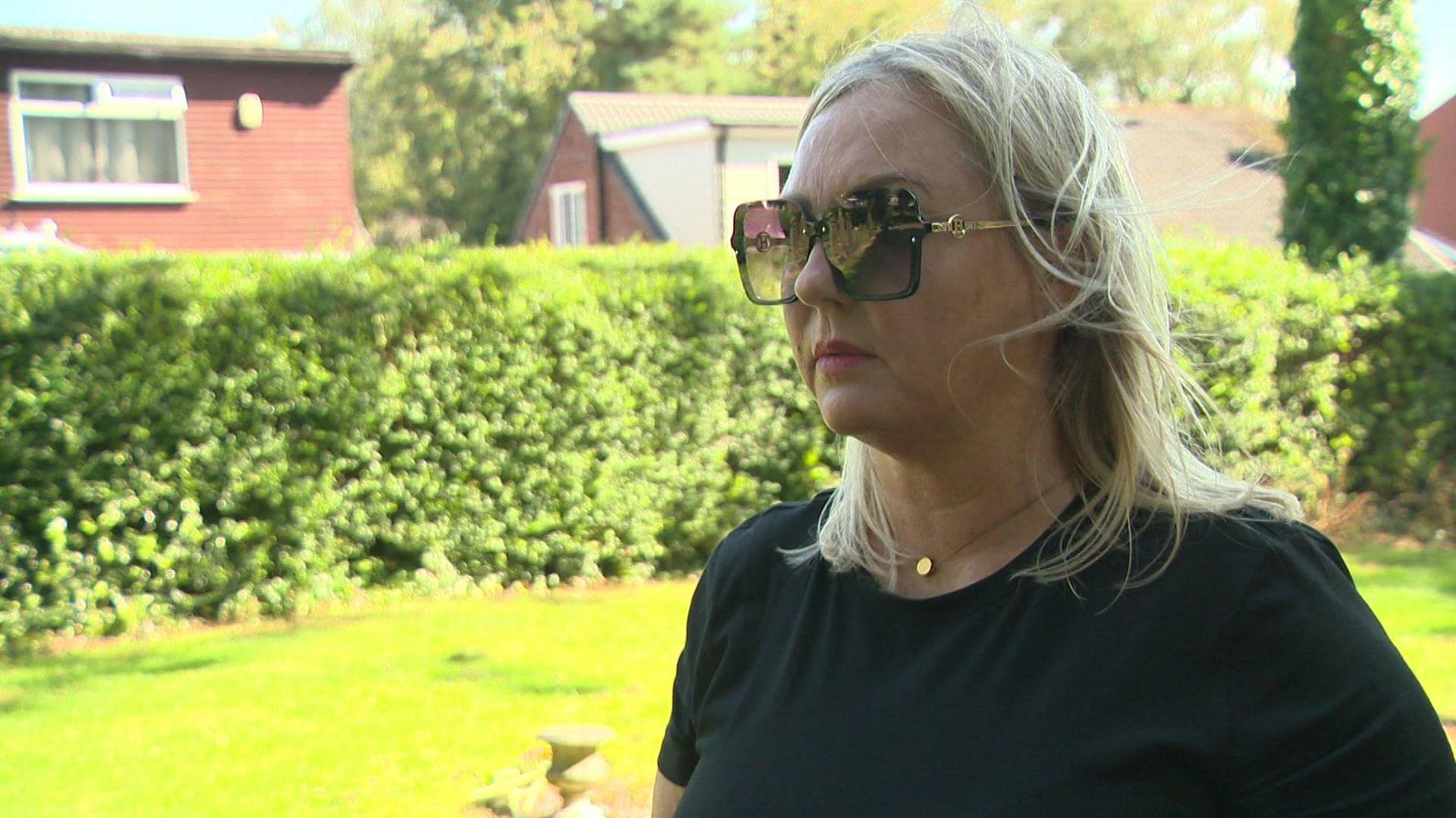
- Published21 July 2024
